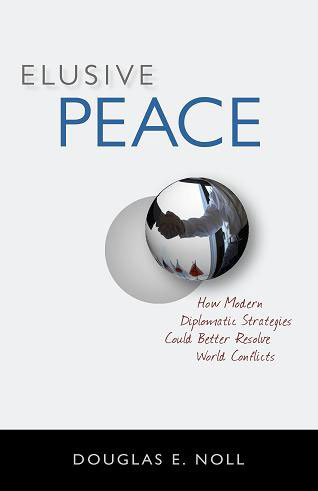Excerpt from Chapter 3 - A Backyard Dispute Goes International
In a nutshell, a local protest action blocked an international crossing point to affect commerce between two countries. While the blockade was illegal, the government of Argentina saw a great political risk in stopping it solely for the benefit of a controversial commercial project in a neighboring country. The government of Uruguay could do nothing to stop the blockade because it occurred on the Argentinean side of the bridge. Thus, Uruguay had no sovereign jurisdiction to solve the problem on its own. And, it supported the pulp mill project because of the economic benefits to the region and to the town of Fray Bentos.
A characteristic typical of social justice and environmental disputes in general, is that the protesters do not wish to negotiate. Typically, in these disputes, they take an early inflexible position. They see mediation and negotiation as a compromise of sacred, non-negotiable values. These emotional responses to conflict are grounded deeply in the psyches of the local citizens. The idea of even having a dialogue with the enemy is conceptually difficult because there is no solution to the problem other than that conceived of by the citizens. The Citizens’ Environmental Assembly of Gualeguaychú felt that the only power it had was the piquetero. Since the Assembly has cast the dispute as a clash of values, it does not see any advantage in negotiation. Even the mention of a dialogue process is met with obstinate resistance because to the protesters, the only conceivable solution is to stop the pulp mill operation and tear down the factory. Thus, the Assembly has focused on a position that has been transmuted into an ideology of belief common in the 21st century. In later chapters, we will look at these social identity and belief-based conflicts in depth to understand how they evolve and how they must be managed.
In this conflict, many people have heard the words, “We will not negotiate!” and there is little perceived motivation to resolve the conflict through consensual dispute resolution. Although the president of Argentina and the regional governor of Entre Rios acknowledge that the piquetero violates local, national, and international law, the political consequences of enforcing the law seem too great to bear. Everyone seems locked down into immovable positions.
This raises several questions. First, why does the Citizens’ Environmental Assembly of Gualeguaychú not want to engage with the Uruguayans? How much time, energy, and effort can the community continue to expend on the protest? How long will their support last, locally and nationally? What will be the effect of losing the case before the International Court of Justice?
Second, why do the Uruguayans think that the favorable decision from the International Court of Justice will actually resolve the conflict? What confidence does Uruguay have that the protests will abate or that there will not be further efforts at a political and civic level to stop or impede operations of the plant?
Third, what are the implications if this conflict is not resolved? Will confidence erode in Mercosur’s ability to resolve trade disputes? Will the inability of the national leaders to engage in fruitful processes continue to be an irritant in diplomatic relations? What would be the long term consequences of strained relations between highly interdependent neighboring nations?
This intractable conflict will not be solved by simply offering mediation, or by trying to entice the Assembly to negotiate a solution to the problem. Although the stubbornness of the Assembly may be frustrating to some, an experienced professional mediator will see it as a normal and expected behavior in this type of conflict. What is most surprising is that no one seems to recognize that this kind of intractability is a common problem throughout the world. Further, the political leaders do not seem to understand that more subtle and nuanced approaches will be required to move the parties towards resolution.

